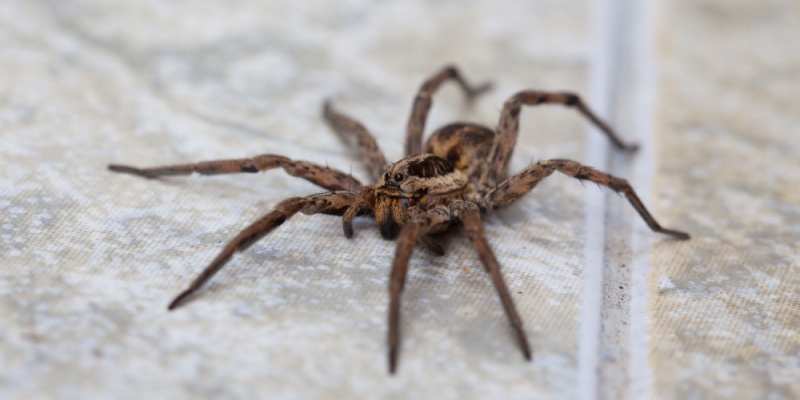Spiders are often misunderstood creatures. While they play a crucial role in controlling insect populations, their presence in homes can be unsettling. If you’ve encountered a spider problem, you might be wondering: Are spiders hard to get rid of? Understanding the challenges and strategies for managing spider infestations can help you address the issue effectively. Here’s a detailed look at why spiders can be difficult to eliminate and how you can tackle the problem:
Spider Behavior and Biology
Spiders are generally elusive creatures. They often hide in dark, undisturbed areas, making them difficult to spot and target. Their ability to spin webs in hidden corners means they can avoid detection for extended periods.
Spiders reproduce quickly, with some species laying hundreds of eggs at a time. This reproductive capacity can lead to rapid population growth, making it challenging to control an infestation once it’s established.
Diverse Spider Species
There are numerous spider species, each with its own habits and preferences. For example, some spiders prefer indoor environments, while others thrive outdoors. Common indoor species like the house spider or the cellar spider might be more difficult to manage due to their adaptation to indoor life.
Each spider species may require different control methods. For instance, the black widow or brown recluse spiders, which are more dangerous, require specialized treatments due to their venomous nature and specific hiding behaviors.
Challenges in Elimination
Spiders often build their webs in hard-to-reach areas like high ceilings, behind furniture, or in cluttered spaces. These locations make it difficult to apply treatments effectively and ensure complete elimination.
Some spider species may develop resistance to certain pesticides over time. This resistance can make chemical treatments less effective and necessitate the use of different or more potent solutions.
Preventive Measures
Maintaining a clean home is crucial for spider control. Regular vacuuming and dusting can remove spider webs, eggs, and potential food sources. However, spiders can still persist if their primary needs are met, such as shelter and food.
Sealing cracks, gaps, and openings around windows, doors, and foundations can help prevent spiders from entering your home. While this measure reduces the chances of new spiders coming in, it doesn’t necessarily address existing infestations.
Integrated Pest Management
Effective spider control often involves Integrated Pest Management (IPM) strategies. IPM combines various methods, including physical removal, environmental management, and targeted treatments, to address the problem comprehensively.
Professional pest control services use IPM approaches and have access to advanced tools and treatments. They can conduct thorough inspections, identify spider species, and apply specialized treatments to address infestations more effectively.
DIY Solutions
Natural remedies like essential oils (peppermint, citrus) and vinegar solutions can deter spiders. However, these methods are often more effective as preventive measures rather than solutions for established infestations.
Commercial spider control products, such as sprays and traps, can help manage spider populations. While these products may offer temporary relief, they might not provide a long-term solution for severe infestations.
Environmental Control
Reducing clutter in your home can minimize spider habitats. Spiders thrive in cluttered, undisturbed areas, so keeping your home organized and free of unnecessary items can help reduce spider-hiding spots.
Managing outdoor environments can also impact indoor spider populations. Trimming vegetation, removing debris, and using outdoor lighting that doesn’t attract insects can help reduce the number of spiders that find their way indoors.
Persistent Problems
Even after applying treatments, spiders might reappear if the underlying issues are not addressed. Persistent problems often require ongoing monitoring and repeated treatments to ensure effectiveness.
Environmental factors, such as high humidity or nearby vegetation, can contribute to spider problems. Addressing these factors can help prevent future infestations, but spiders may still seek shelter indoors.
Health Considerations
Some spiders, like the black widow and brown recluse, can pose health risks due to their venom. Managing these species requires careful handling and professional intervention to ensure safety.
Even non-venomous spiders can cause discomfort or exacerbate allergies and phobias. Addressing spider problems can help alleviate these concerns and improve overall well-being.
Long-Term Strategies
Regular inspections by pest control professionals can help identify and address spider problems before they become severe. Routine checks can also help manage and prevent future infestations.
Ongoing maintenance, such as regular cleaning, sealing entry points, and using preventive treatments, is essential for long-term spider control. A proactive approach can help keep spider populations in check and prevent reoccurrences.
Eliminate Spiders with These Tricks!
Getting rid of spiders can be challenging due to their elusive nature, reproductive capacity, and varied species. While spiders are not necessarily hard to manage, addressing the problem requires a comprehensive approach that includes understanding spider behavior, implementing preventive measures, and utilizing both DIY and professional solutions. If you want to effectively manage and reduce spider populations, contact Pest Raiders and say goodbye to those creepy crawlies for good!
